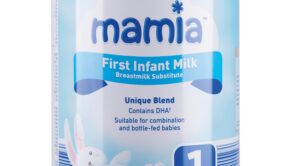Under pressure

ShelfLife’s survey of key suppliers in Ireland captures a snapshot of 12 months’ experience and a glimpse of the secret world that is a most reluctant centre of attention
11 December 2009
This year has seen a flurry of controversy around the negotiating practices of retailers, with Dunnes Stores and Tesco in particular being inculpated repeatedly in the national media and trade press for their heavy-handed dealings with suppliers. Reports made openly, and others scarcely whispered in private for fear of repercussions, prompted cries from several quarters for a statutory code of conduct to govern relations between retailers and suppliers, and an ombudsman to police it.
The subject is one about which it is very difficult to make a judgement, at least publicly, due to the unwillingness of stakeholders on all sides to speak openly about it. A handful of suppliers have gone on the record about their dealings with certain major companies, and the unfortunate position they landed in as a direct result. But many more, and some retailers too, have spoken off the record, so that questions cannot be put those accused, rightly or wrongly, of unfair treatment or profiteering.
On the other hand, the subterfuge from which such criticisms and accusations have made their way into the public domain is understandably unpalatable for retailers, some of whom believe they have been unfairly painted as ‘the big, bad wolf’ by an unnamed accuser. However, as we have plainly seen by the actions and conflicting statements of Tesco this year, market power and dominance on one side makes this an unfair fight and ties the hands of the weaker side. Unfortunately, until this dynamic is prevented from inhibiting openness and transparency, real and honest debate on the subject cannot take place.
As we come to the end of this very tense year, it has to be acknowledged that all have been put under immense pressure to bring down prices, which has been reflected in the latest CPI figures showing a decrease of 6.5%. So on account of the year that’s in it, and because ShelfLife has been a patient listener within the trade this whole time, we decided to survey key suppliers to the Irish grocery trade to find out what, in general, have been their experiences.
The on-line survey was conducted during the month of November, covering all the main product groups. The aim was primarily to find out how much more aggressive buyers have become in negotiating prices and terms over the past year. Responses were returned anonymously, however some suppliers also made contact and gave comments once anonymity was assured.
ShelfLife supplier survey: Under pressure
The first question we asked suppliers was about product sales during 2009. A whopping 64% said that sales had declined, while 18% saw modest increases, and 18% said that sales remained static. For those who said that sales had fallen, percentage declines ranged from -15% to as much as -65%, with the average drop being -28%.
We then asked suppliers if they had come under increased pressure from retailers to supply grocery products on less favourable terms than previously applied. Not surprisingly, 95% of respondents reported increased pressure. Respondents also stated that the level of discounts (in any form) being demanded by the larger retailers also increased by 95%.
Suppliers were asked to give details of the types of deals, reductions and demands now being sought by the main retailers operating in Ireland. They listed the following:
• BOGOF
• Half price offers
• EDLP pricing
• Longer credit terms
• Increased LTAs
• Increased contribution to marketing funds
• Increase in overall margin expectations/demands for increased margin to retailers
• Lower invoice price
• Increased percentage settlement
• More free stock
• Price and marketing support
• UK pricing
• RSP to match cross border and margin maintained
• Fully funded big promotional offers
• Price reductions to reduce RSP while maintaining percentage margin
Every little hurts
We asked the question, which retailer has been applying the most pressure to reduce prices and/or alter terms in their favour? From the suppliers polled, 50% of respondents claimed that Dunnes Stores has been the most severe in its demands.
A massive 67% of respondents claimed to have had products de-listed during the year. Of those that said they had had a product de-listed in 2009, almost half had been dropped by Tesco, followed by Dunnes, Superquinn and Musgrave to a much lesser extent.
We also asked suppliers had they been “threatened” with de-listing, to which 50% said they had. Of those that said they had been threatened, 80% said that Dunnes Stores was the main employer of this tactic, followed by Tesco.
Finally we asked suppliers of Irish-produced products how they had fared during the year. Of those that responded to this question, 25% said they had been supported by the major multiples, 19% said they had products replaced with items manufactured outside of Ireland, 19% reported no change, and a worrying 37% said they had had their range reduced.



 Print
Print






Fans 0
Followers